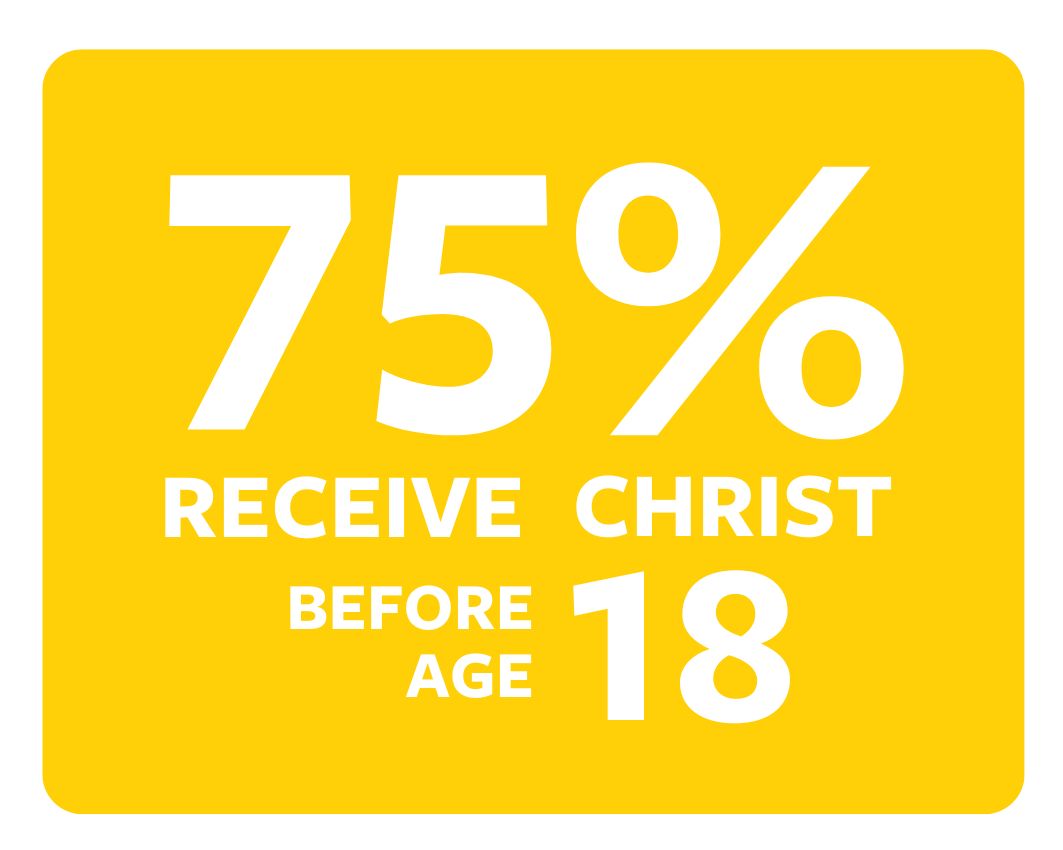Teenagers are searching. They’re hurting, curious, and wide open to the kind of hope only Jesus can offer. Many are silently asking, Who am I?, Do I matter?, What’s real? In a world that offers endless noise and few real answers, students are desperate for someone to show up, listen, and point them toward something solid.
If we care about reaching people, we have to care about reaching teenagers. They’re in one of the most vulnerable, formative stages of life and they’re more open to spiritual conversations than most adults. Teenagers aren’t just the future of the Church, they’re the present mission field. When you reach a student with the gospel, you don’t just change their story, you help rewrite every story their life will touch.
And practically speaking, almost every person passes through a high school. If we focus on reaching students, we’re planting the gospel in places that impact entire communities.

A Tolerant Generation
This generation is incredibly open. Gen Z places a high value on acceptance, self-expression, and individual freedom. They believe people should be free to define their own truth and identity, and while that leads to less judgment, it also means more confusion. With so many competing voices, teenagers are searching for something solid to build their lives on.
- Moral Relativism: 60% of Gen Z say what is morally right or wrong “depends on what an individual believes.”
- Moral Flexibility: 61% say happiness is the ultimate goal in life, and morality changes based on society.
- Moral Independence: Only 4% of Gen Z hold a biblical worldview. Most are building their moral beliefs from personal experience, feelings, and cultural trends.
This tolerance creates spiritual openness but also reveals a desperate need for clarity and truth.
“Teenagers are searching. They’re hurting, curious, and wide open to the kind of hope only Jesus can offer.”
A Lonely Generation
Despite being more digitally connected than any generation before them, today’s teens are deeply lonely. Social media, performance pressure, and isolation have taken a toll on their mental and emotional health. Many feel unseen, anxious, or numb. They’re not just scrolling for entertainment, they’re searching for belonging.
- Constant Screen Use: Nearly half of teens (46%) say they are online “almost constantly.”
- Bullying Prevalence: In 2021, 1 in 6 high schoolers were bullied at school, and 16% were cyberbullied.
- Rising Sadness: 42% of U.S. high schoolers reported persistent feelings of sadness or hopelessness in 2021.
- Suicide Crisis: Every 100 minutes, a teenager takes their own life.
Behind the selfies and TikToks is a generation quietly asking, “Do I matter?” The gospel speaks directly to that ache.
“Behind the selfies and TikToks is a generation quietly asking, ‘Do I matter?’”
An Open Generation
The very pressures that have left teens lost have also left them spiritually hungry. Teens are asking deep questions about meaning, identity, and purpose. They may be less religious, but they’re not less curious. This is a generation wide open to spiritual conversations—especially when they are honest, respectful, and centered on Jesus.
- Interest in Jesus: 77% of U.S. teens are at least somewhat motivated to learn more about Jesus.
- Pain Driving Spiritual Curiosity: 49% say their generation is more curious about faith because of the challenges they’ve faced.
- Desire for Meaning: 52% say they are actively searching for purpose in life.
- Gospel Urgency: “About three fourths of all people who have consciously, intentionally, and personally chosen to embrace Jesus Christ as their Savior did so before their 18th birthday.” – George Barna
If we don’t step in with truth, someone else will fill that gap with counterfeit answers. Now is the time to meet them where they are.
“If we don’t step in with truth, someone else will fill that gap with counterfeit answers.”
Reaching Everyone
If you wanted to reach everyone with the gospel in any given city, where would you go? Is there a place where everyone goes?
Almost the entire population goes through middle schools and high schools at some point. Reaching those campuses is one of the most strategic things we can do.
In Cru, we want to give everyone a chance to know someone who truly follows Jesus. This is our plan. We go to the local middle or high school and take steps of faith to serve and share the gospel with teenagers.
Why do we go to the local schools? Because that is where all the teenagers are! They are asking the questions, and we believe Jesus has the best answers. They are hurting, and we believe that we can help.
The best time to share the gospel with someone is during their teenage years.

Conclusion
This generation is open. They’re hurting, curious, and more spiritually aware than we often realize. But they won’t find Jesus unless someone brings Him to them. That someone could be you.
When you reach a teenager, you reach more than a moment—you shape a lifetime. Their faith doesn’t stop at graduation. It grows, multiplies, and impacts the people around them. That’s why we go to the campus. That’s why we start here.
Next Step
Find out if there is a Cru ministry reaching teens near you, and consider how you can invest in reaching teens with us.
Find Cru Near You








